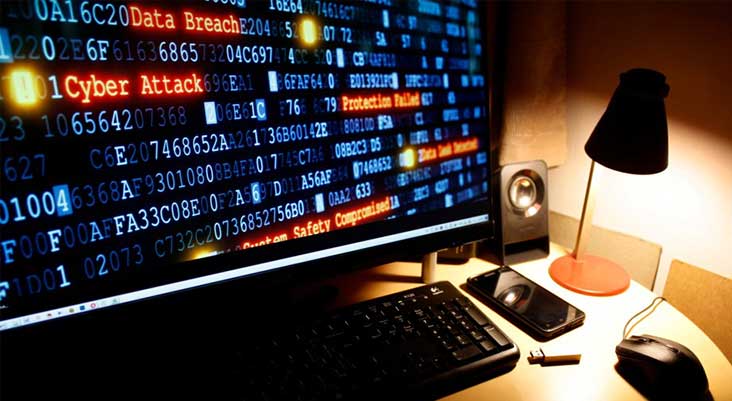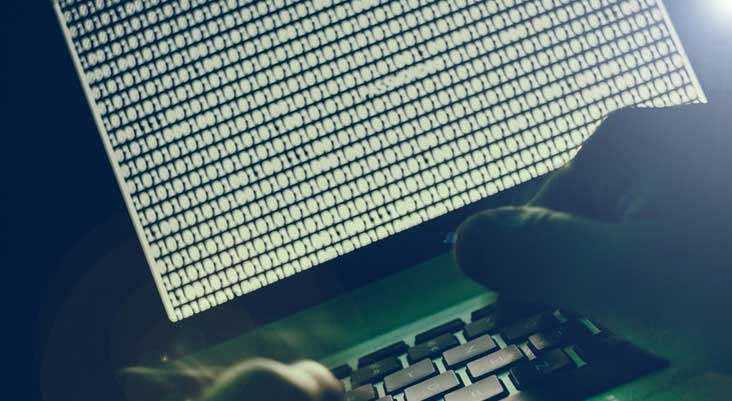



Perhaps one of the worst things that can happen at your office is your computers getting infected with a virus.
Not only can a virus disrupt operations, but harmful computer viruses can also destroy the information in your system.
That's why tightening up your security and getting rid of computer viruses immediately is critical for businesses.
In this article, we will go over everything you need to know about computer virus removal.

Before getting into how to remove a computer virus, let's briefly look at why you should investigate immediately if you suspect that one has entered the environment.
For one, a virus can damage programs and delete PC files.
If you keep all your essential files on one PC, this poses a huge risk for you and your office.
Certain types of computer viruses encrypt all the important files on your hard drive- making them inaccessible. The parties who write these types of viruses then demand a ransom before you can regain access to your data!
Some viruses do not interrupt your access to your data but instead use your system resources, slowing down your internet connection so much it'll be impossible to do anything online.
Computer viruses can also slow down your system and cause application and system crashes.
Sound awful?
It is.
That's why knowing how to prevent and remove computer viruses is critical knowledge for all business owners.

How can you tell if you have a computer virus?
You could always run a virus scan, of course. But there are other signs you can look out for, including:
If you notice your computer (whether it be Windows or Mac) starting to slow down significantly, this can be an indication that a virus is present on the system.
While some computers may exhibit slowness as they age, if you notice a sudden drop in speed may be a sign that there is malicious activity inside your computer.
Another noticeable sign you have a computer virus is random pop-ups.
Are you getting pop-ups whenever you turn on your computer?
Maybe some programs open by themselves without you clicking on them?
If so, something is fishy. Unless you know why you're getting those pop-ups, a virus is possibly lurking in your computer.
You might also get error messages popping up, which is a clear sign that something is not working as-designed.
In the same fashion, you might also get a lot of annoying ads all over the place.
A healthy computer doesn't have any ads.
Sure, you might see some as you browse the internet. But if you see ads without going online, something is wrong.
If people say they're receiving suspicious messages from you, this is yet another sign your computer is infected.
The virus will use your computer to send emails or messages to people you know so that it can infect their computers as well.
Next up, a sudden lack of storage space.
This is a sign you're infected with a less harmful virus. Nonetheless, it'll eat up all your computer space, and your computer will jam up soon.
If your computer continues to slow down, pretty soon, you'll experience the Blue Screen of Death (or BSOD).
If you're experiencing constant crashes and always meeting the BSOD, you may have a harmful virus infection in your computer.
Keep in mind, though, that computer viruses aren't the only cause of BSOD. Check out our guide on computer problems to find out what else may be causing this.

Prevention is better than a cure. Posibly nowhere is this more true than dealing with computer viruses.
It's much easier to stop a virus from getting into your PC or Mac than to remove it once it's inside.
On that note, here are some ways to prevent viruses from getting in:
A virus scanner is one vital program every computer should have.
Why?
Because it can spot any viruses in your system before you even notice anything is wrong.
A regular virus scan will do your system a world of good.
Likewise, you should always keep your OS up-to-date.
Whether you're on a PC or Mac, you're bound to get notifications for software updates from time to time.
Make sure you allow these updates!
Yes, sometimes it can take a lot of time. But outdated software is a hotbed for viruses to enter your computer (even if it's a Mac, which is more difficult for viruses to get into).
Another critical thing you should do is to back up your data.
Why?
Because if ever a computer virus slips through the cracks, you can lose absolutely everything.
All those critical files you stored in your system?
Gone.
This is why backing up all your important files is essential.
Keeping them in a secure cloud location means that they will be safe and sound if your system gets attacked even.
Next up, avoid suspicious links and emails.
One of the most common ways for viruses to get into your system is through suspicious links.
These can come from anywhere.
When you're on the internet with your browser, stay away from spammy ads.
Even if a friend sends you an email that sounds a little bit “off,” be careful! They might have a virus on their end that's trying to get into your system.
That's why whenever you see a suspicious link, avoid it. Even if it's coming from a friend.
Finally, it pays to educate yourself about viruses.
And not just yourself, but everyone else in your office as well.
The good news is that by reading this article, you're taking a massive step in the right direction.
Being able to tell when something is off is a huge advantage for you.
Plus, knowing what “suspicious” links look like will help everyone in your office avoid getting viruses in the first place.

Alright, so how do you remove a virus from your PC?
The first thing you should try is running your virus scanner software.
For less complex viruses, that should do the trick.
If that doesn't work, we recommend calling in an expert to help you out. This is because removing a bad virus can get very technical and challenging.
However, if you want to give it a try yourself, here's what you should do:
Alternatively, you can also reformat your computer.
This will get rid of everything in it. All your files and programs will be lost.
However, if things are bad, this might be the only way (that's why it's critical to back up your important files).
Now let's have a closer look at the method we mentioned above.
Before performing this procedure, it's wise to disconnect your computer from the internet first.
This way, if your virus is using the internet to spread further, you'll at least stop it in its tracks.
Next, you'll want to restart your computer in safe mode.
When you start in safe mode, your machine will be in diagnostic mode. Both Windows and Mac computers have a safe mode option. It's built to help fix issues with the operating system - like viruses.
To use safe mode in Windows, follow these steps:
For Mac users, here's how to get into safe mode:
The easiest way to delete temporary files is by using your computer's disk cleanup.
When you run disk cleanup, make sure that “temporary files” are checked before clicking on delete files.
You want to do this since some viruses are found in the temporary files of your computer.
Once the temporary files are gone, try running your virus scanner once more.
With everything you've done up to this point, it should do a much better job of getting rid of the virus in your computer.
Once the virus scan is over, restart your computer one final time.
A lot of times, taking these steps will get rid of your problem.
However, for more complicated malware, this won't help.
If you've gone through all these steps and still failed to remove a virus from your computer, the only real choice you have left is to reformat your devices.
Now, you will lose everything in it.
All your programs and files will be gone forever.
But if you've already saved them anyway, reformatting is an excellent method for removing viruses and malware.
Viruses and malware can get highly destructive.
They can disrupt your office's operations and can destroy important files.
This is why viruses and malware are not something to take lightly.
Look for the signs of them right away, and jump to virus removal procedures asap.
The good news is that you won't need special tools to get rid of a simple virus.
However, if you have a bigger problem.
Or if you don't want to take any risks.
You should hire the experts instead.
So call us today at (833) 600-8864 for professional help with virus and malware problems.
And if you're in or around Pennsylvania, New Jersey or New York, we can come to your office to help solve your problems as well.